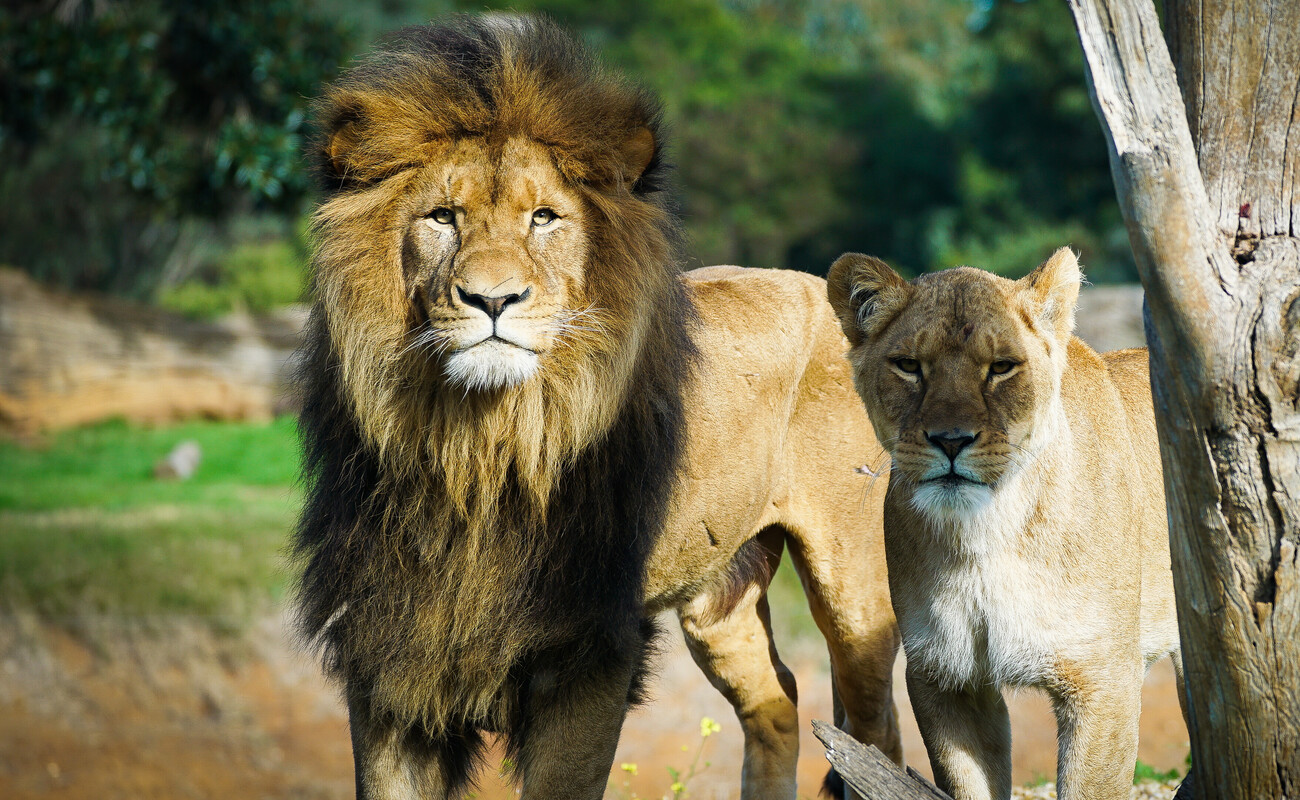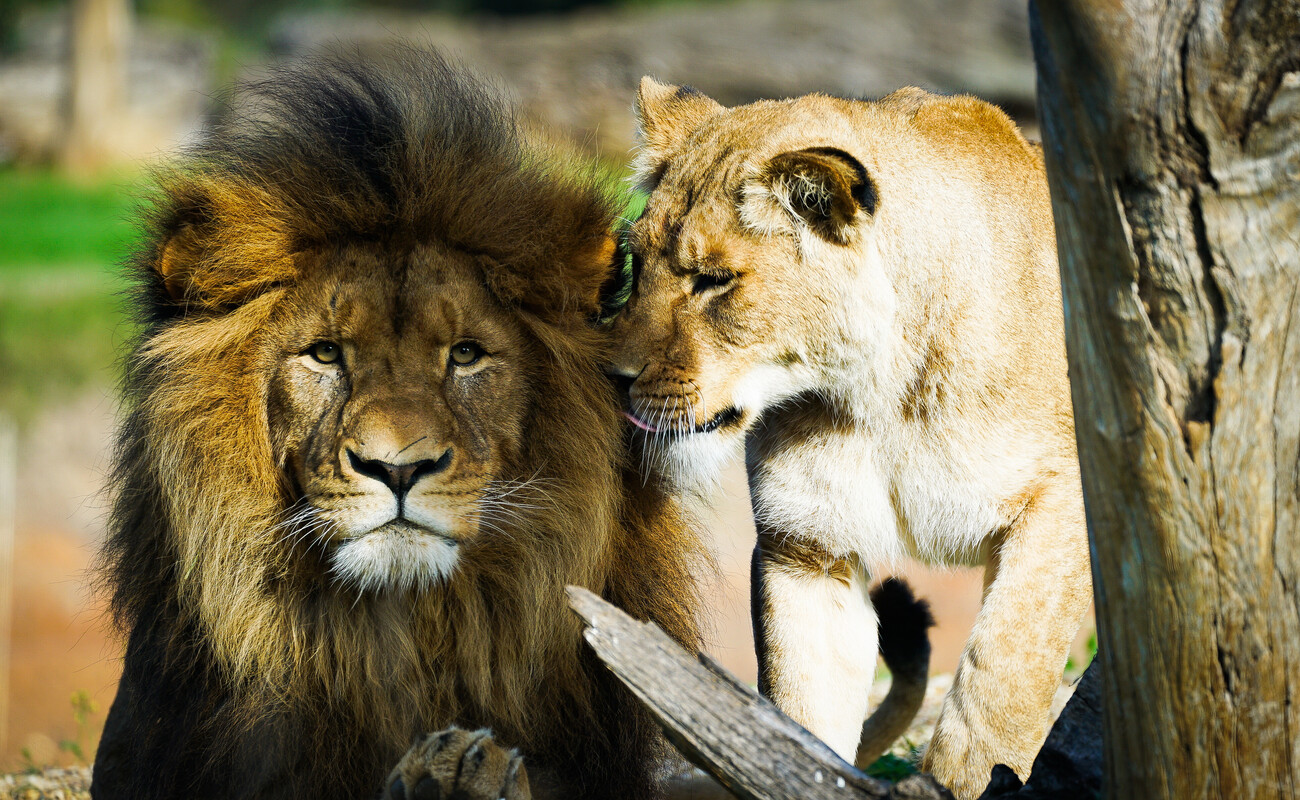Werribee Zoo’s king of the jungle finally meets his queens
A new African lion pride is being created at Werribee Open Range Zoo – the first step to a possible litter of cubs.
Zoo visitors can watch the introductions that have begun between the Zoo’s newest arrival – four-year-old male Sheru [pronounced: Share-oo] – and the Zoo’s two lionesses, Nilo [Neel-o] and Asali [Ass-ah-lee].
African River Trail keeper Christina Speckamp said Sheru is eagerly spending quality time with his new companions, which involves scent marking, vocalisations, chase and bouts of play.
“Sheru previously lived in a bachelor pride with his three brothers and hasn’t been around other female lions since weaning from his mother,” Ms Speckamp said. “At four years of age, he is now the prime age to establish and lead a lion pride, as male lions do in the wild.”
During the past month, Sheru and the two lionesses spent time in adjacent habitats to allow the three big cats to become accustomed to each other’s sounds, sights and smells.

Zookeepers have been carefully monitoring the lions’ interactions. The most important to keepers are moments when the three lions lay in close proximity, rolling onto their backs in a vulnerable and trusting display.
“When we see the two girls and Sheru lying close together, quite relaxed, it shows us that we are moving in the right direction,” Ms Speckamp said.
Lions are the only social cat species, choosing to live in prides of two to 40 individuals. As with all social groups, hierarchies are important to maintaining cohesion. Tussles and swipes are important communication tools to establish new social hierarchies, and intergroup boundaries.

“Lions are very forgiving. If they have a disagreement, they may have a snarl or a swipe and then it’s over.
“What we are now working towards is making them very resilient to all of the areas of their habitat, slowly extending the time they spend together.”
Lions are classified as Vulnerable in the wild, with their species in decline as a result of hunting and habitat destruction. It’s estimated as few as 23,000 individuals remain in sub-Saharan Africa.
The lions at Werribee Open Range Zoo form part of an international and regional breeding program to maintain a genetically diverse pride that can support conservation of wild lion populations.
